Huawei's EV partnership yields unexpected hit
To maintain Huawei's consumer products sales channels, Richard Yu, chairman of Huawei's smart car unit, created Huawei Smart Selection model to partner with automakers to make cars and sell them at nearly 60,000 Huawei phone stores across the country. But the Smart Selection model is not without variables and risks from its partners. Caixin Global journalists tell us more.
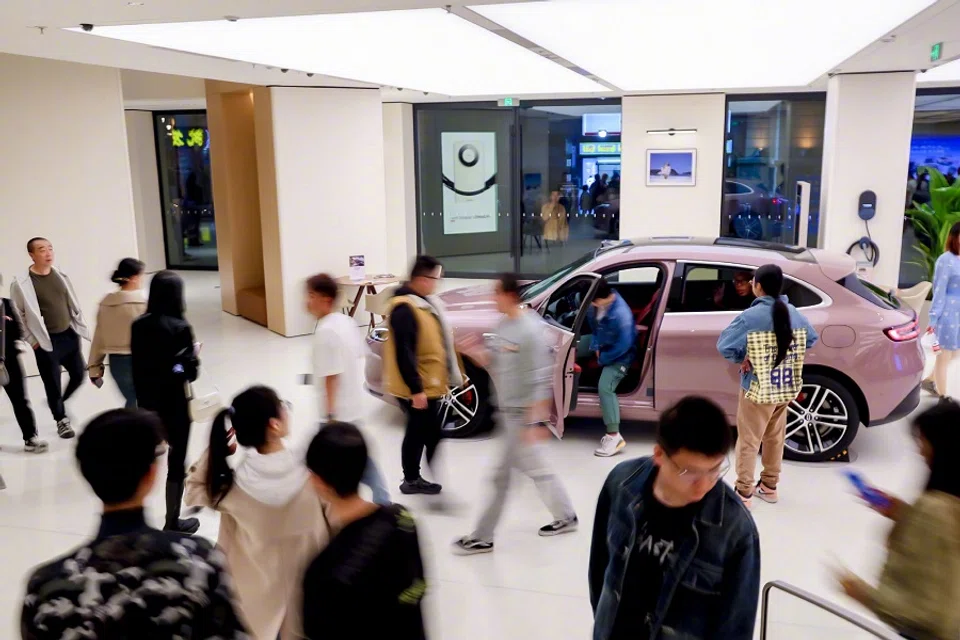
(By Caixin journalists An Limin, Zhang Erchi and Denise Jia)
A new electric car co-developed by Huawei Technology Co. Ltd. and automaker Seres Group Co. Ltd. has received over 60,000 orders within a month after the launch of the Aito M7 SUV on 12 September. With demand exceeding the two partners' expectations, Huawei has committed 1 billion RMB (US$136.5 million) of additional investment to guarantee the delivery.
Richard Yu, chairman of Huawei's smart car unit, called the triumph a "rise from the dead" in a social media post 6 October. Inside Huawei, the M7 is viewed as another Mate 7, the flagship smartphone launched in 2014 that reversed the telecom equipment giant's reputation as a budget phone maker and helped to save Yu's job as the head of Huawei's consumer business group.
After several rounds of US sanctions since August 2020 crippled its once-lucrative smartphone business, Huawei has been eager to explore new sources of revenue. In order to maintain Huawei's consumer products sales channels, Yu created Huawei Smart Selection model to partner with automakers to make cars and sell them at nearly 60,000 Huawei phone stores across the country. Unlike an earlier model, Huawei Inside, or HI, in which automakers use Huawei's smart car system and the vehicles are identified with HI in their model names, in the Smart Selection model, Huawei provides sales channels and has a bigger voice in car development and marketing.
Sales of Aito's the Smart Selection model increased by more than sixfold to 80,041 units in 2022, helping Huawei to get through its toughest year, when it only sold 28 million smartphones, compared with 241 million in 2019.
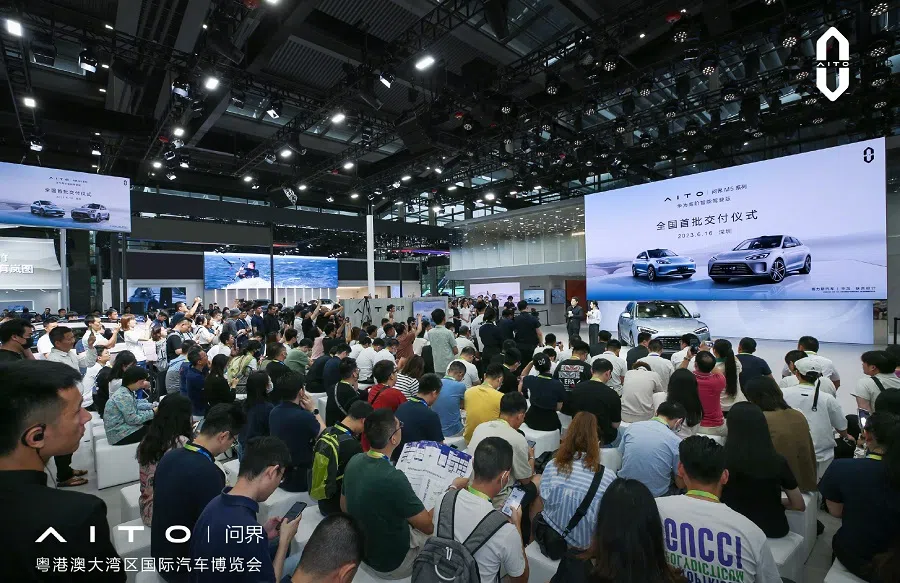
Under the Smart Selection model, Huawei can not only sell parts and technology licenses to its partners, but also get commission from selling the cars at its smartphone stores, according to people close to the company.
Many automaker partners worry that Huawei will make its own cars sooner or later, and that they are just used as sparring partners. Therefore, some are reluctant to purchase Huawei's system and parts under the HI model.
But the model has also been accompanied by controversy. In 2021, Huawei dismissed speculation that it wants to be China's Tesla challenger. The company said it set a clear long-term strategy in 2018 that it would not make cars, and that strategy has not changed. But now with the Aito cars, Huawei is deeply involved in product design, development and quality control, making it very close to carmaking itself.
Many automaker partners worry that Huawei will make its own cars sooner or later, and that they are just used as sparring partners. Therefore, some are reluctant to purchase Huawei's system and parts under the HI model.
Phone-car synergy
Earlier this year, when sales of Aito cars were disappointing, the Smart Selection model was also under pressure inside Huawei. If the model cannot prove its profit potential, Huawei may reassess its auto business's direction, a person at Huawei disclosed.
Huawei's auto business was originally meant to fill the sales gap in its mobile business after the US imposed sanctions. But the launch of its latest smartphone, the Mate 60 Pro, in August, is being hailed as Huawei's triumphant return to mobile phones. TF International Securities analyst Ming-Chi Kuo estimated that Huawei's smartphone shipment could increase 65% this year to 38 million units, and over 60 million units next year.
Now with the recovery of its smartphone business, how Huawei will position its former lifeline, the auto business, has attracted market attention.
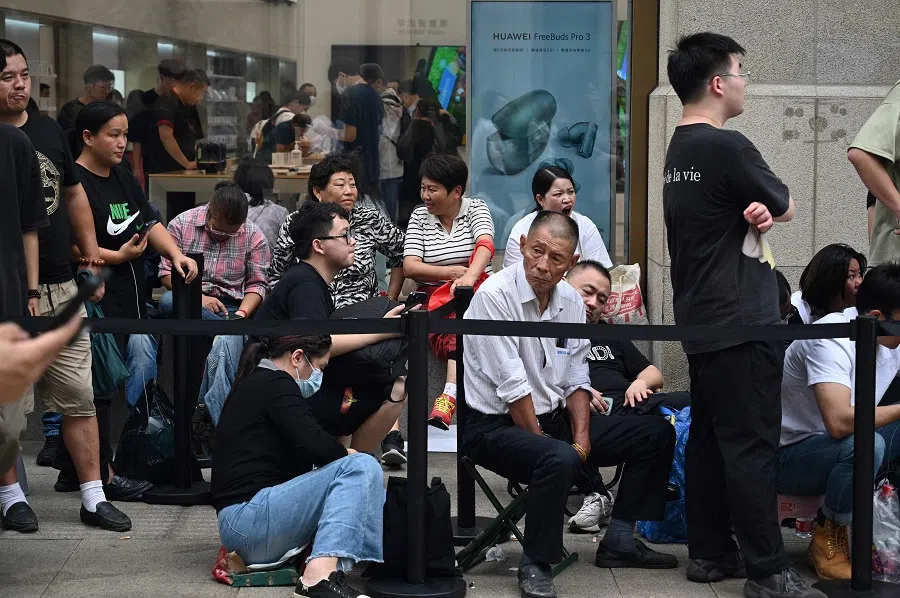
At the technical level, the smartphone and auto segments have synergism. The Mate 60 Pro phone is powered by a new homegrown Kirin 9000s chip. The processor is the first to utilise Semiconductor Manufacturing International Corp.'s most advanced 7-nanometre technology. After adapted for vehicle configuration, the chip is also used to power the infotainment screen in the Aito M7. At a press event in Shanghai, Huawei's Yu emphasised that the M7's infotainment system would provide the same smooth experience as the Mate 60 Pro.
Huawei is already trying to take advantage of synergism in the marketing of both the SUV and the smartphone. The company offered future owners of the M7 priority access to buy its Mate 60 series of smartphones.
Avatar Technology Co. Ltd., a new-energy vehicle unit jointly owned by Chongqing Changan Automobile Co. Ltd. and Nio Inc. and also a partner of Huawei, is offering a special version of Mate 60 Pro to existing Avatar owners who invite their friends to buy a new car.
Expanding fleet
Riding on the success of M7, Huawei announced another two new models, the Luxeed S7 electric sedan to debut in November, and the Aito M9 full-size SUV, to reach stores in December. During a new product launch ceremony on 25 September, Yu said the S7 will be superior to Tesla's Model S. The Aito M9 will be the most powerful SUV priced under 10 million RMB and the best SUV on the roads, he said.
While the M7 and earlier model M5 are just updated versions of Seres' existing models, the M9 is a new product in which Huawei is involved in the design. The SUV, with an expected price range of 500,000 to 600,000 RMB, features Huawei's smart car full-stack technology solutions and is powered by dual electric motors supplied by Huawei. The model is poised to take on luxury competitors from Mercedes and Nio.
... technical advantages do not guarantee Huawei's success, as the severe competition in China's EV market is forcing automakers to launch various unique features.
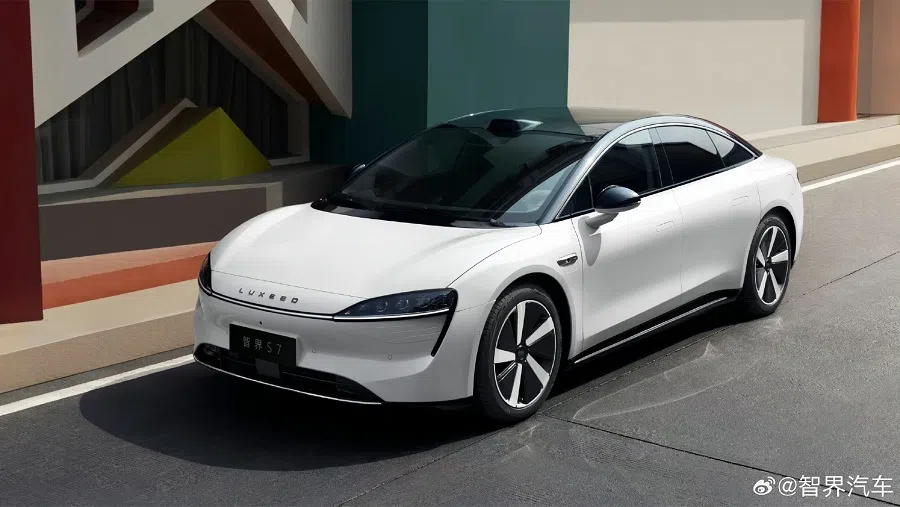
If M9 can gain a foothold at this price range, it can also drive the demand for existing models, a person at Huawei's auto partner said.
Intelligent advantage
It is commonly recognised in the electric-vehicle (EV) industry that the second half of EV competition is smart car systems, which is Huawei's strength.
At the press conference for the launch of M7 on 12 September, Yu announced that Huawei's new advanced intelligent driving system, which no longer relies on high-precision maps, will be available across the country.
However, technical advantages do not guarantee Huawei's success, as the severe competition in China's EV market is forcing automakers to launch various unique features.
On 19 October, Tesla began selling its upgraded Model 3, which competes with Huawei's S7. Tesla plans to deploy its Full Self-Driving (FSD) features in the Chinese market. On a live stream in August, Elon Musk demonstrated the FSD capability in a test drive in Palo Alto, California. Musk believes that FSD's advanced computer power and training capabilities could eventually lead to self-driving cars that are not just as good as humans, but substantially better.
Domestic rival XPeng Inc. released its flagship model G9 SUV, with a price range competing with the M7 and Tesla's Model Y.
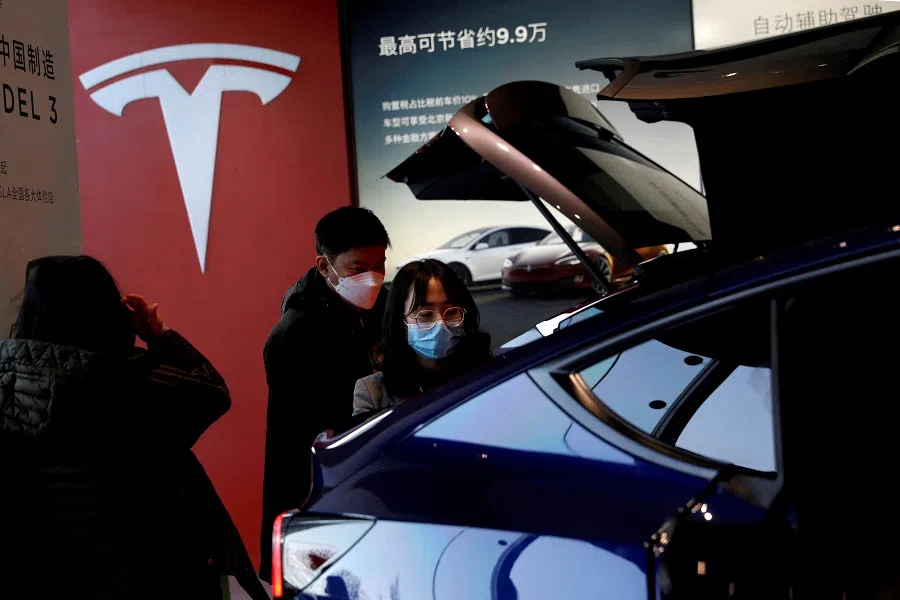
People inside Huawei admitted that its Smart Selection vehicles may not have a pricing advantage compared with these rivals. Since the beginning of the year, China's auto market has struggled in the abyss of the price war.
There is competition between the two channels in actual operation. For example, the sales staff of Seres' user centres may offer better terms, trying to persuade consumers to cancel orders placed at Huawei stores and turn to the user centres.
With more models in in its pipeline, Huawei's sales and after-sales network also face challenges. Under their original agreement, Aito cars will be mainly sold at Huawei's stores. But vehicle delivery and after-sales services will be handled by Seres' user centres, which also sell cars.
There is competition between the two channels in actual operation. For example, the sales staff of Seres' user centres may offer better terms, trying to persuade consumers to cancel orders placed at Huawei stores and turn to the user centres. At the same time, as Huawei has no control over after-sales service, and poor consumer experience will affect Huawei's reputation. In addition, limited space at Huawei stores means multiple models cannot be displayed at the same time.
Huawei plans to build a separate sales channel for the auto brands under the Smart Selection model, Caixin learned from sources.
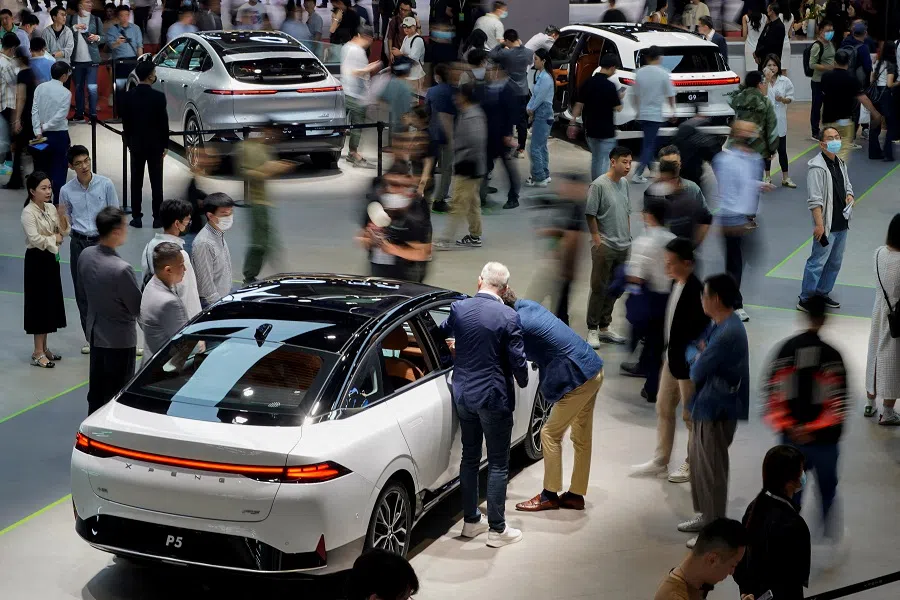
The Smart Selection model also faces variables and risks from its partners. People familiar with Huawei terminals, for example, said that when Seres initially collaborated with Huawei, both were on the edge of life and death, according to people close to Huawei. With the success of the Aito series, Seres may bring up new requirements in their partnership, such as adjusting the proportion of revenue sharing, the people said.
Within the Smart Selection model, the positioning of the four partner brands and the status of each partner are also different, which will make it difficult for Huawei to coordinate their different interests, the people said.
This article was first published by Caixin Global as "In Depth: Huawei's EV Partnership Yields Unexpected Hit". Caixin Global is one of the most respected sources for macroeconomic, financial and business news and information about China.


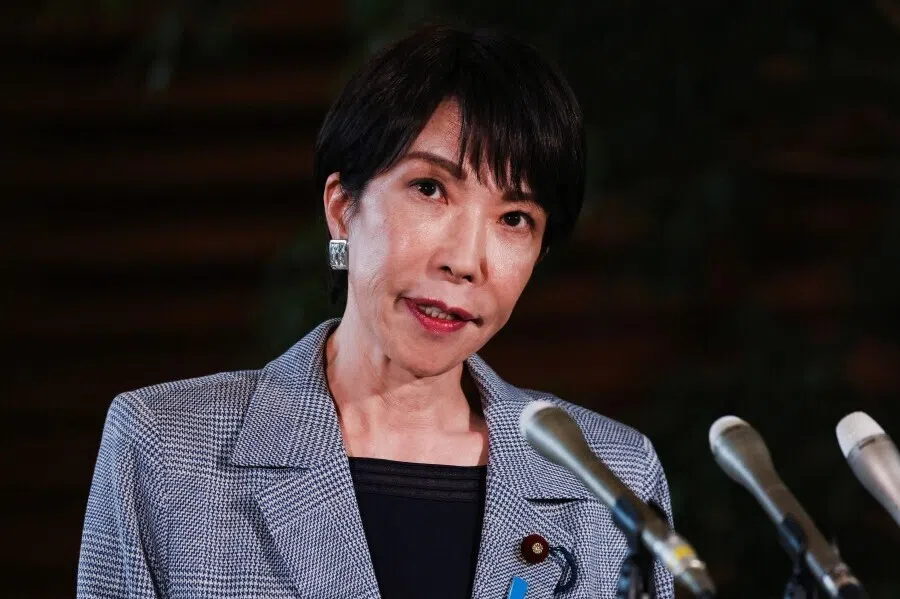
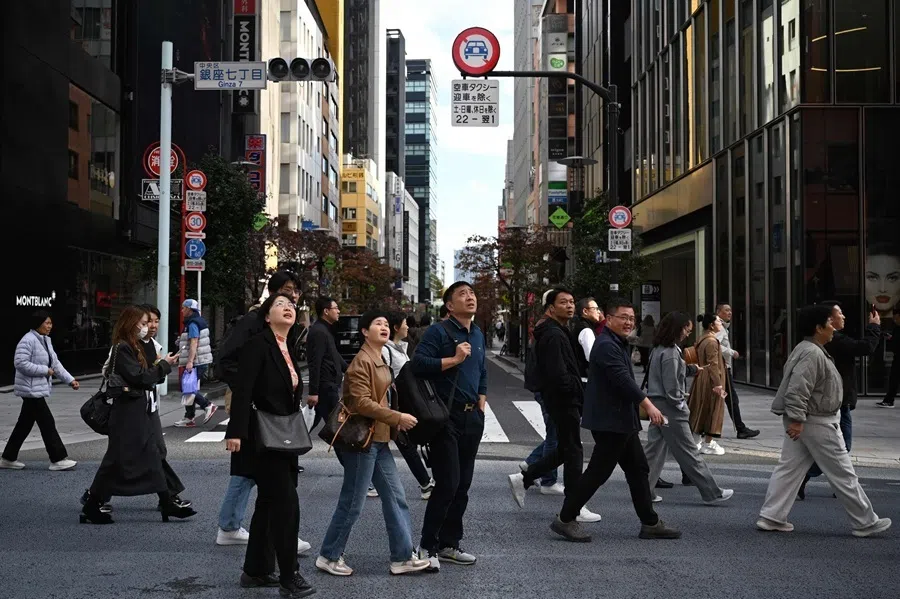
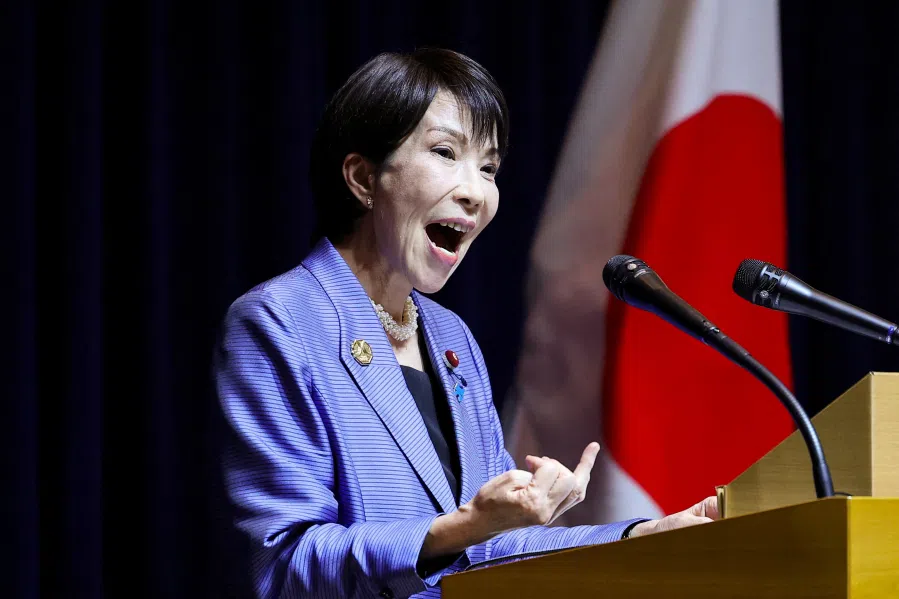
![[Big read] China’s 10 trillion RMB debt clean-up falls short](https://cassette.sphdigital.com.sg/image/thinkchina/d08cfc72b13782693c25f2fcbf886fa7673723efca260881e7086211b082e66c)